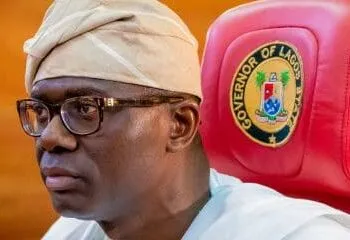Aliko Dangote, President of Dangote Industries Limited (DIL), has affirmed that the Dangote Petroleum Refinery is fully equipped to meet Nigeria’s domestic fuel requirements.
Speaking at a recent event, Dangote disclosed that the refinery currently holds more than half a billion litres of petroleum and over 600 billion Naira worth of products in its tanks. “As we speak right now, we have more than half a billion litres, and the refinery is producing enough refined products—gasoline, diesel, kerosene—to meet 100% of Nigeria’s requirements,” he stated.
During a tour of the refinery complex by a delegation from the Zambian government, led by Minister of Energy, Mr. Makozo Chikote, Dangote stressed that the project is not solely for Nigeria, but for Africa as a whole. “This refinery is not only for Nigeria; it is for Africa. We must sustain the African Continental Free Trade Area (AfCFTA) deal. We are trying to see how we trade with other African countries,” he explained.
Chikote, who led a team of energy experts on the working visit, expressed his admiration for Dangote’s vision. “The presentation by the Vice President, Oil and Gas of Dangote Industries Limited, Mr. Edwin Devakumar, made our hearts jump. It spoke directly to the challenges we face in Zambia,” he remarked, highlighting that in Zambia, private sector participation has driven growth, with all petroleum operations managed by private companies. “Your presentation is an immediate solution to our energy needs. We are looking at Dangote coming on board, which would lead to efficient, reliable, quality, and competitive products—something we need urgently,” he added.
Samuel Maimbo, Vice President of Budget, Performance Review, and Strategic Planning at the World Bank Group, currently campaigning for the presidency of the African Development Bank, noted that Africa lacks sufficient development aid and government funding. “There is also not enough government funding to develop Africa. The only way we can finance Africa’s growth at a pace that truly solves our problems is by working through the private sector,” he explained.
Meanwhile, Vice President of Dangote Industries Limited, Edwin Devakumar, outlined the refinery’s impressive production capabilities. “The project concept was to process Nigerian crude and add value, but also to provide flexibility to process African and even some Middle Eastern crudes,” he said. He described the approach as one of maximum value extraction, where every barrel of crude results in the highest possible value addition.
According to Devakumar, 44% of the refinery’s output is earmarked to meet Nigeria’s fuel demands, while the remaining 56% is intended for export. “Every day, we produce lighter products totaling 104 million litres; this includes 57 million litres of petrol, 20 million litres of jet fuel, and 27 million litres of diesel. With local consumption at around 46 million litres, the remaining 58 million litres will be exported,” he noted.
Together, these initiatives not only secure Nigeria’s energy future but also aim to strengthen intra-African trade and reduce reliance on imported fuels. Dangote’s strategy underscores his commitment to transforming the continent’s industrial landscape and driving regional economic integration.












